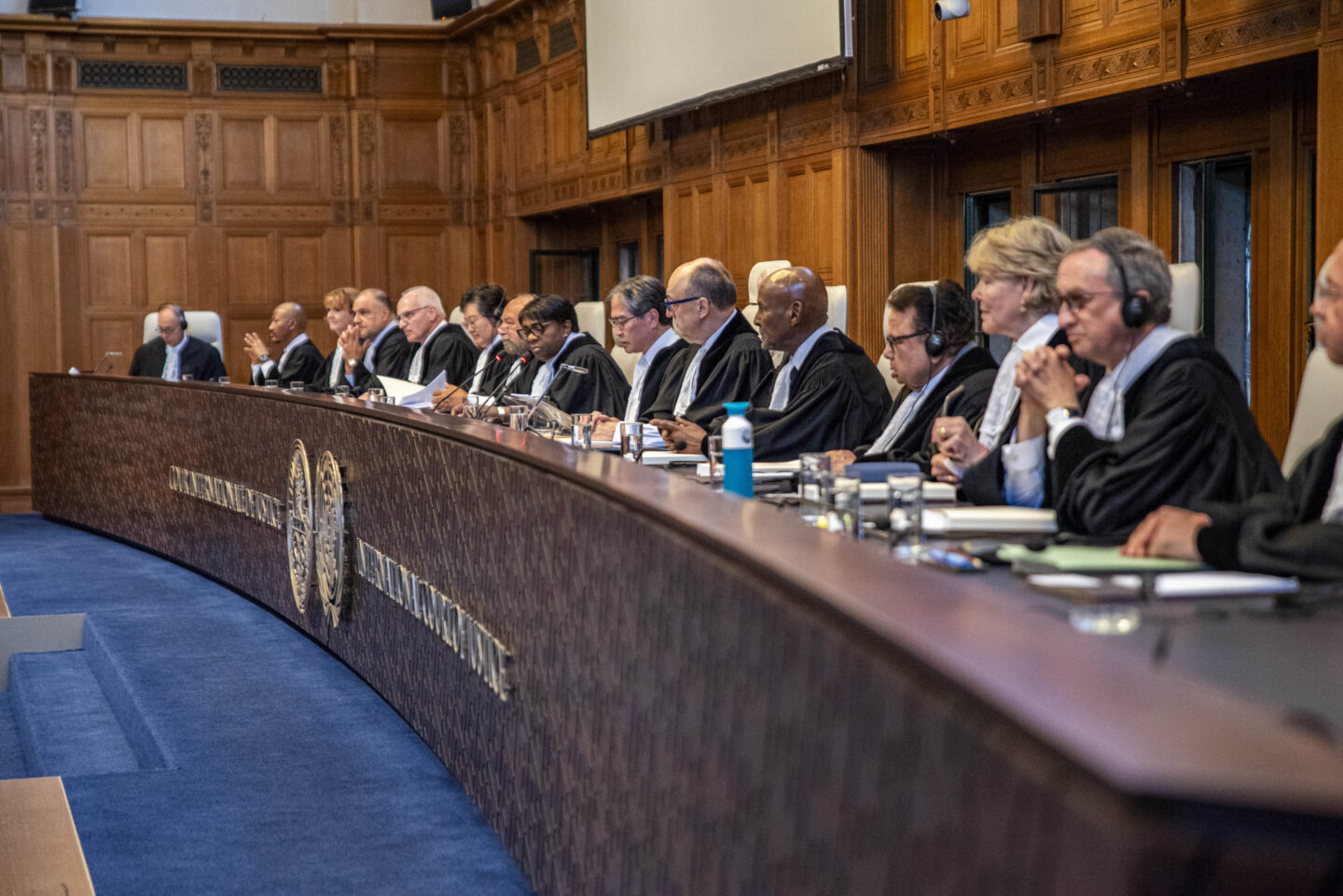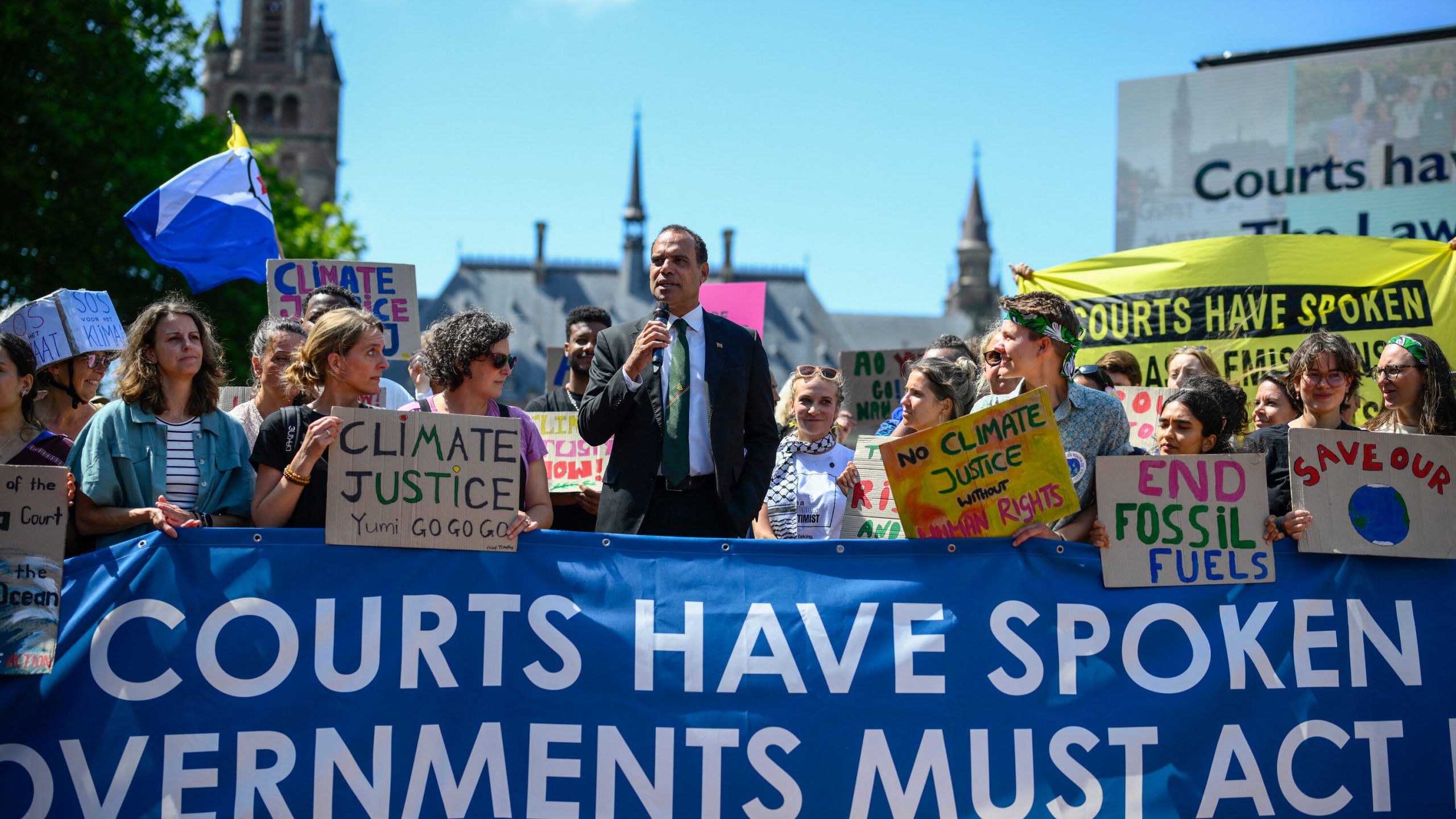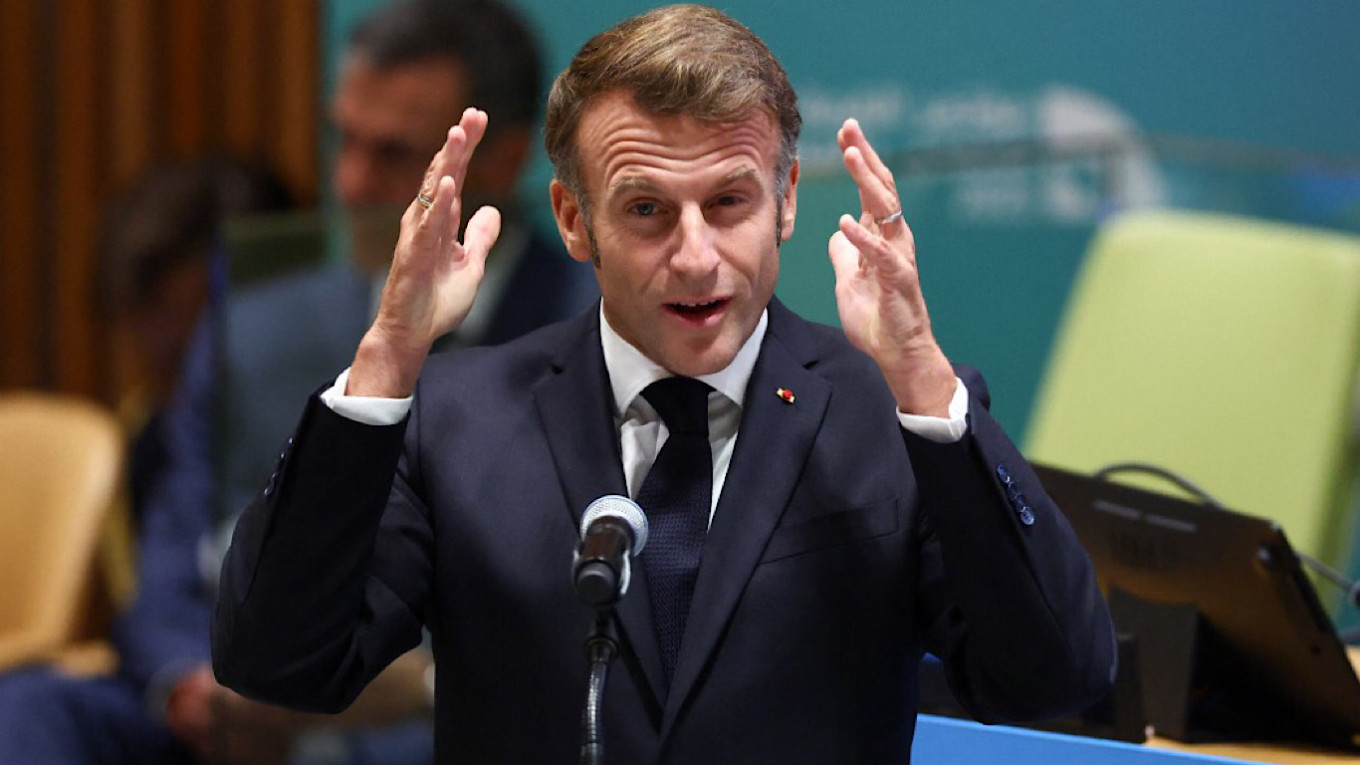The United Nations’ top judicial body, the International Court of Justice (ICJ), issued a landmark ruling stating that wealthy nations must uphold their commitments to reduce fossil fuel emissions and pollution or face potential financial consequences.
The court emphasized that international treaties legally bind these countries to mitigate climate change, particularly in relation to the damage suffered by vulnerable nations. This decision reflects a growing global emphasis on legal accountability in the fight against environmental degradation.
Nations Held Accountable for Emissions Beyond Borders, Risk Financial Penalties for Inaction
The 15-member ICJ clarified that countries are also responsible for emissions and environmental harm caused by companies operating under their control, regardless of geographic boundaries.
Judge Yuji Iwasawa highlighted the human-driven nature of greenhouse gas emissions and stated that these activities are not restricted to national territories. The ruling underlines the legal requirement for nations to collaborate in achieving tangible emission reduction targets, establishing a precedent for international environmental responsibility.

The court warned that failure to meet climate commitments could lead to full reparations for affected states. These reparations may take the form of restitution, financial compensation, or other appropriate measures, as long as the legal conditions for state responsibility are satisfied.
This legal position opens the door for nations to be held financially accountable for the harm suffered by countries most vulnerable to climate change, potentially altering the approach to global climate justice.
Mixed Global Reactions Highlight Political Tensions and Support From Climate-Vulnerable Nations
While the ruling was applauded by many international leaders, reactions varied. U.N. Secretary-General António Guterres praised the decision, calling it a win for climate justice and acknowledging the critical role of youth activism.
Conversely, a White House spokesperson reiterated President Trump’s “America First” stance, signaling a potential resistance to international obligations that conflict with domestic priorities. This contrast underscores the political complexities surrounding global climate policies.
The decision was especially welcomed by smaller and developing nations, particularly those most affected by rising sea levels and extreme weather events. Ralph Regenvanu, climate minister for the Pacific island nation of Vanuatu, expressed surprise and satisfaction at the strength of the ruling.
Many of these countries have long sought legal clarity following the perceived shortcomings of the 2015 Paris Agreement in curbing emissions. The court’s opinion may offer these nations new legal avenues to demand climate accountability from industrialized countries.












Leave a Reply